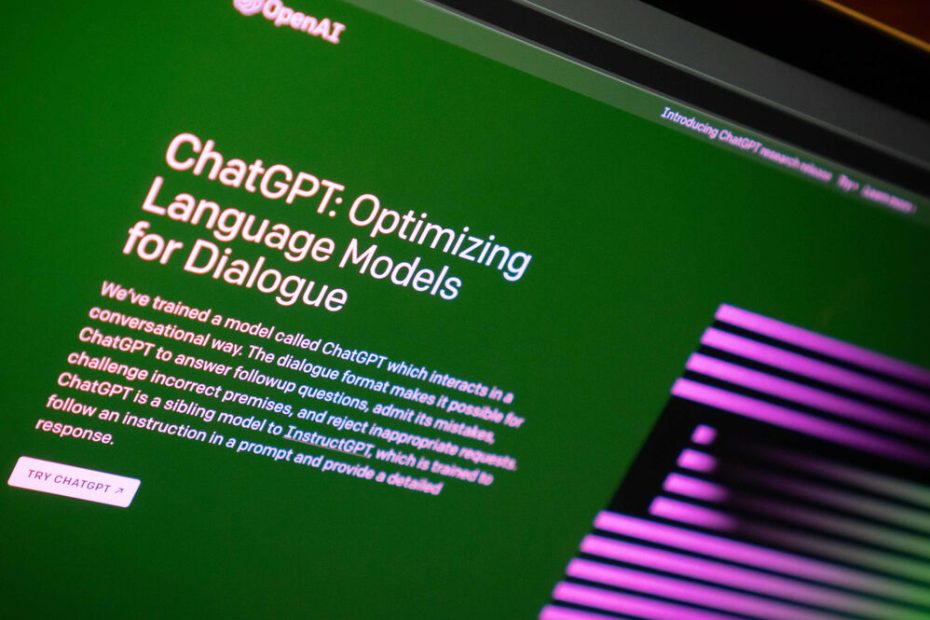“ChatGPT, please write a blog article on the influence of AI on Open Source Software. Please use around 700 words.” – This was our instruction to ChatGPT.
The AI ChatGPT has been the subject of everyone’s attention for a few weeks and months now. What the chatbot has to say about the influence of Artificial Intelligence (AI) on Free, Open Source Software (FOSS) can be found in this article. The article is unchanged from ChatGPT. We only included images, URLs and added the paragraph at the end as a short comment from our side.
ChatGPT: AI Impact on OSS

Open Source Software (OSS) has had a profound impact on the software industry by allowing anyone to view, modify and distribute software without restrictions. The emergence of Artificial Intelligence (AI) has further influenced OSS by providing tools that can improve software development processes and create new applications and services.
AI can help improve the quality of software development by automating many of the routine tasks involved in the process. For example, machine learning algorithms can be used to identify bugs or suggest improvements to code, freeing developers to focus on more complex tasks. AI can also predict potential issues, allowing developers to address them before they arise.
Moreover, AI can analyze large data sets, and OSS tools like Apache Spark can process and analyze data. This has led to the development of new applications in fields like finance, healthcare, and logistics that are built on top of OSS and AI technologies. AI and OSS are being used in healthcare to develop new applications for diagnosis and treatment planning, while in finance, AI can analyze financial data, making it easier to identify patterns and trends.
One of the benefits of AI is that it can help automate many of the routine tasks involved in software development, freeing up developers to focus on more complex and creative tasks. This can help improve the quality of the software while also reducing the amount of time and resources needed to develop it.
AI can also help identify potential security vulnerabilities in software before they can be exploited. Machine learning algorithms can be trained to detect patterns in code that may indicate a vulnerability, allowing developers to fix the issue before it becomes a problem.
However, there are concerns that AI could have a negative impact on OSS. As AI tools become more sophisticated, it may become more difficult for developers to understand how the code works. This could make it more difficult for developers to modify and improve the code, potentially leading to a decline in the quality of the software.
Another concern is that as AI becomes more prevalent in software development, it may lead to a reduction in the number of developers needed to maintain OSS projects. While automation can help reduce the amount of time that developers need to spend on routine tasks, it could also lead to a reduction in the number of people needed to work on a project. This could potentially limit the diversity of perspectives and ideas that are brought to bear on the development of OSS.
Despite these concerns, the overall impact of AI on OSS is generally seen as positive. One of the main benefits of AI is that it can help automate many of the routine tasks involved in software development, freeing up developers to focus on more complex and creative tasks. This can help improve the quality of the software while also reducing the amount of time and resources needed to develop it.
In conclusion, AI has already had a significant impact on OSS and will continue to do so in the future. While there are concerns about the potential negative impacts of AI on OSS, the overall benefits of AI in improving software development processes and creating new applications and services outweigh the potential drawbacks. As AI technology continues to evolve, it is likely that we will see even more innovative uses of AI in OSS.
Our Comment

It’s impressive what modern AI, like ChatGPT, is capable of. Of course, one can bring different opinions and perspectives to the topic of “open source and AI”, but we can state regarding our example that the article is absolutely flawless.
However, we must note that we had to limit the length to 700 words, as longer texts were simply aborted. In addition, the text obviously doesn’t go into much depth and the content is repetitive in some places. ChatGPT is a language model that can imitate and produce language and text incredibly well, but has no real understanding of the content itself. That’s why there are always some funny and some problematic mistakes, which are often shared on social networks.
In general, AI has changed our everyday life in many ways, whether obvious or unnoticed. We also regularly use the AI-based machine translator Deepl to translate our blog articles.
As we, the founders of ViOffice, are full-time statisticians or data scientists ourselves, we are of course familiar with both the possibilities and risks of huge amounts of data, modern machine learning algorithms and artificial intelligence. We are excited about the technological innovations, but we also do not lose sight of our focus on data protection, privacy and digital self-determination. Furthermore, the development of AI frameworks is a cost- and timeintensive endavour, which may ultimately lead to market distoring situations in favour of already dominating monopolistic corporations such as Google, Amazon, Meta and others. In this respect, AI has its own challenges, which we will continue to address in our blog, while at the same time examining which AI-supported systems make sense for our services.


